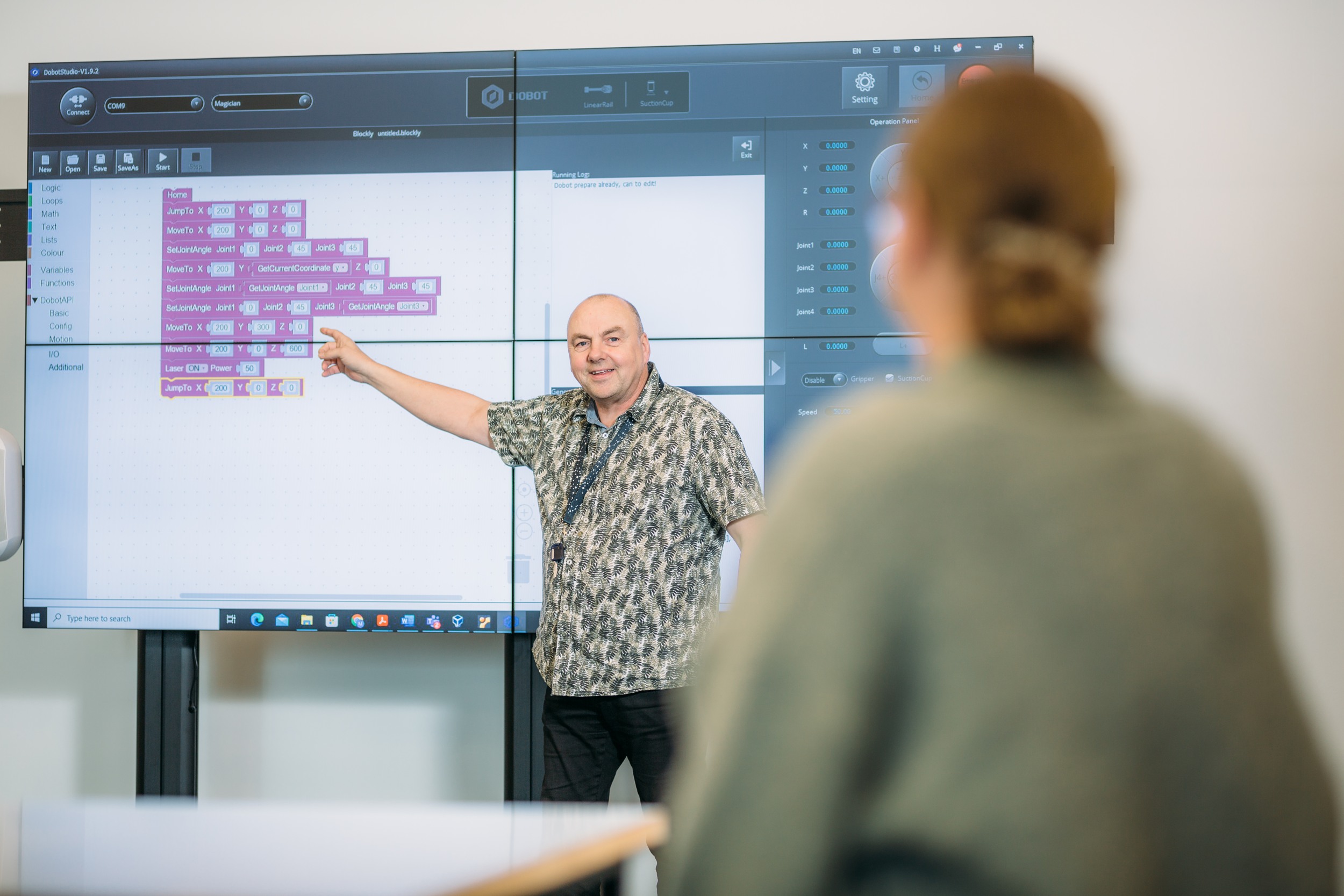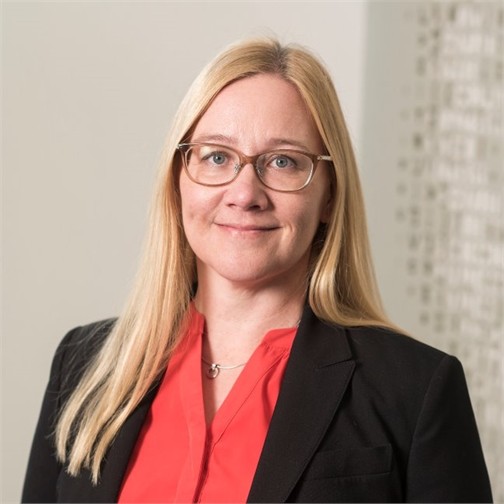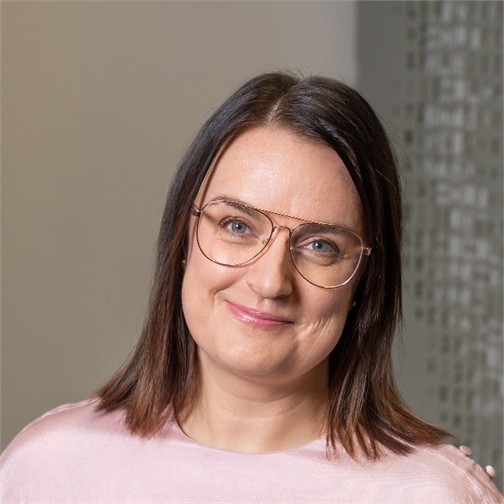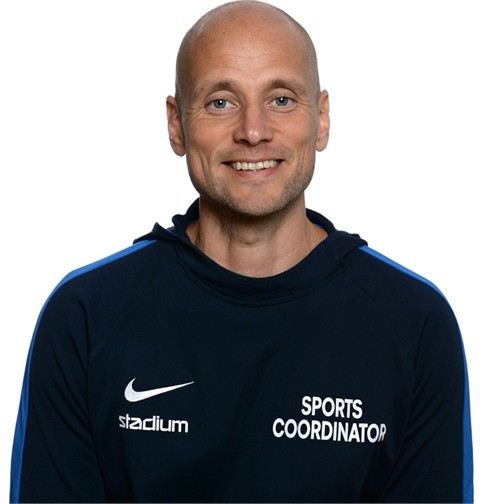
Accessibility of teaching and studying
Accessibility means ways in which the physical, mental and social environment is designed to ensure that everyone can interact with others on an equal footing, regardless of their individual characteristics.
Accessibility plan
Accessibility is important for all HAMK students and staff. It is particularly important for those who have some form of mobility or activity issue, are older or belong to a cultural or linguistic minority.
Efforts to improve accessibility support the elimination of various obstacles to studying. In addition to the accessibility of the facilities, we pay attention to removing so-called invisible obstacles. Such obstacles include various special learning challenges and obstacles related to mental health problems.
Physical accessibility in HAMK’s facilities
In the future, HAMK’s special arrangements for accessible mobility will be available on campus-specific maps.
Support for the accessibility of studies
To support the accessibility of studies, HAMK students are provided with
- an accessible learning environment (learn.hamk.fi) with a text reading program ReadSpeaker
- a work environment that supports accessibility (MS365)
- training on digital ease-of-access functions in the Digistartti package
- possibility to order textbooks read aloud from Celia
- assistive technologies
- library support
In addition, HAMK staff are trained to plan teaching in accordance with the Universal Design principle, which is suitable for everyone, and to produce content and materials that are accessible in learning environments.
Support and guidance for the progress of studies
Enabling students to progress in their studies is part of accessibility. At HAMK, students can receive support and guidance for the progress of their studies throughout their studies. Depending on the situation, the staff of the degree programmes and HAMK’s support and expert services provide support and guidance. In addition to HAMK staff, the students are supported and guided by several HAMK partners such as the Student Union of Häme University of Applied Sciences, the Finnish Student Health Service FSHS and specialists in social services in HAMK’s operating area.
Physical activity at higher education institutions
al activity at higher education institutions
The Coordinator of Sports Services is responsible for HAMK’s sports services, and the services are under the name HAMK Moves. Measures and services intended to maintain and develop the physical activity of the higher education institution are accessible to all students.
The task of the Coordinator of Sports Services is to support the student individually in matters related to physical activity and exercise, if necessary, and various support measures and opportunities for individual arrangements are available.
Combining goal-oriented sports and studies is actively supported at HAMK, and a co-operation agreement has been concluded with Hämeenlinnan Urheiluakatemia to promote it. The athletes’ life situation is considered when planning their studies, and the entire study path is planned to reconcile sports and studies and to ensure the continuity of their studies.
In addition, the students are supported by co-operation between HAMK Moves and FSHS in the form of a functional service chain.
Individual arrangements for entrance examinations
Individual study arrangements during studies
Students may apply for individual arrangements related to their studies. The teaching arrangements may consider personal health problems, hearing, visual or other sensory impairment, dyslexia, panic disorder, ADHD or learning difficulties. Such individual arrangements may include, for example, additional time for assignments or examinations, a separate exam room or other flexible study opportunities on a case-by-case basis.
The individual arrangements are not a reason to compromise on the learning outcomes, but rather are intended to support the achievement of these outcomes. For example, the assessment of competence is carried out using the same criteria for each student, and any individual arrangements do not affect this assessment. The compulsory components of the degree can only be bypassed if there are extremely pressing reasons (e.g. the participation of a deaf person in an audio language understanding test). The primary approach is to agree on an alternative assessment method together with the party responsible for the teaching. The starting point for any individual arrangements must be a verified need such as an illness, disability or learning difficulty diagnosed by a doctor or other expert.
Individual arrangements are sought using an electronic form. Before completing the application for individual arrangements, the student will make an appointment with the special needs teacher and present the certificates related to their request for individual arrangements (e.g. a reading and writing certificate, a doctor’s statement) and, after the discussion, can complete the electronic application.
Accessibility and international student exchange
Students preparing for an exchange may need accessibility services, for example due to a disability, illness or learning difficulty. The purpose of individual arrangements is to support students’ studies and everyday life during student exchanges: accommodation, mobility, participation in recreational opportunities, enjoyment and general well-being. The need for support and solutions suitable for situations vary between students. It is a good idea to start searching for information and organising support as early as possible. Students preparing for an exchange must present their needs for accessibility and related arrangements.
ESOK (Finnish higher education institutions’ network of accessible studies) and CIMO (The Centre for International Mobility) have compiled a checklist for staff working in international affairs offices of higher education institutions, managing accessibility and disability issues, and helping students in need of accessibility support.
A special need is not an obstacle to internationalisation. In addition to an exchange grant, a student or a staff member of a higher education institution may receive additional financial support to participate in international exchange. Accessibility support is available in several Finnish National Agency for Education programmes. In the period 2021-2027 of Erasmus+, similar support will be provided under the name of Inclusion Support. Accessibility support or Inclusion Support is intended to enable exchange when there is a special need to cause additional costs for the exchange period that cannot be supported elsewhere. A special need may be caused by a disability, mental or physical illness, learning difficulties, personal situation or other similar reason. The application process is completely confidential. For example, support may be granted for special arrangements related to accessible accommodation, mobility or studying such as learning materials or the costs of assistants and preparatory visits.
Current status
HAMK International is responsible for ensuring accessibility when encountering students in exchange guidance discussions when planning their exchange. In the discussion, the students highlight possible obstacles, which means that according to the guidelines of the Finnish National Board of Education, the students can receive additional financial support for their exchange periods in accordance with their own needs. In addition, HAMK International will investigate the conditions of the partner school in relation to their special needs. For example, it will be ensured that the campus area is accessible, that the apartments available to the students are accessible and whether there is something special that should be considered if the student has special needs.
Challenges
The main challenge for incoming exchange students is the housing situation, how can we be sure that we offer accessible student housing? In a student guidance situation, the student’s possible special need may not be revealed if the student does not specifically mention it. Situations are challenging if the meeting does not reveal the student’s special need, in which case the guidance process does not consider support for the special need and important communications with the partner school on the student’s needs related to, for example, the accessible campus area and housing.
Student admissions (applying for degree programmes)
Student admissions involve different application and admission processes, the end result of which is that some applicants have the right to study at HAMK. Student admissions are based on pre-determined admission criteria that ensure equal treatment of applicants. Students are admitted to degree-awarding education, teacher education, professional specialisation studies, higher education degree programmes and expert education, open UAS studies and continuing education.
Current state of accessibility of student admissions
The HAMK website contains information on all degree programmes that you can apply for or register for. For example, basic information on degree programmes, study contents, study practices, the field of study and employment as well as application instructions have been provided on degree-awarding education and teacher education. In the texts intended for applicants, we have made an effort to comply with the accessibility guidelines in terms of both text formatting and content.
In addition, the Studyinfo portal maintained by the National Board of Education updates the descriptions of education leading to a degree and teacher education, admission criteria, application process guidelines and entrance examinations. The applicants submit their applications, and the entire selection process is handled in the Studyinfo system. The Studyinfo portal also contains information on other degree programmes. It is currently being planned that open UAS studies are included in the portal. Information on applying for degree-awarding education and the national UAS entrance examination is also available on the Universities of Applied Sciences website, which is maintained by the university of applied sciences student admission development project (Ammattikorkeakoulujen opiskelijavalintojen kehittämishanke in Finnish) (Metropolia UAS).
Development targets for the accessibility of student admissions
The aim is to improve accessibility in connection with the HAMK website reform. The structure and linguistic expression of texts and instructions will be clarified. Other applicant communications will also get more attention and we seek ways of making the instructions comprehensible to everyone.
Responsibilities
The Head of Education Development is a member of the accessibility steering group. We have appointed accessibility experts for the support services of education. They are responsible for coordinating accessibility work and working in the higher education institution’s network of accessibility experts.
Each staff member is responsible for the accessibility of functions, documents and other content related to their work. Staff members must be able to produce accessible documents related to their work.
New people are introduced to accessibility issues that are part of their own work.
Contact us




